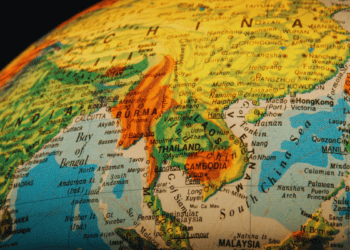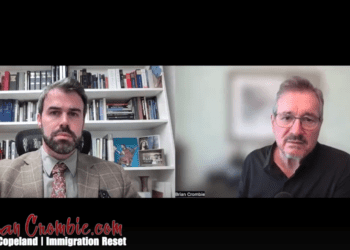Writing in the Globe and Mail, MLI senior fellow Alex Wilner and Dalhousie research fellow Anita Singh raise the issue that Narendra Modi, frontrunner to become India’s prime minister, has been refused a visa by Canada for years. They write: “His banishment has strained relations between Canada and Gujarat, a regional economic powerhouse. More broadly, it has also undercut Canada’s effort to pursue economic relations with the rest of India”, and they encourage the Canadian government to clarify its position on Modi prior to the results of the current elections in India.
ANITA SINGH AND ALEX WILNER, April 14, 2014
Narendra Modi will likely become India’s next prime minister. His victory in this month’s general election raises hopes for India’s sagging economic fortunes. But it also raises serious questions about India’s bilateral relations with Canada.
For the last 12 years, Mr. Modi has been denied a visa to Canada. Ottawa has justified the ban by relying on a provision in Canada’s Immigration and Refugee Protection Act that bars suspected human rights abusers. In 2002, as chief minister of Gujarat – an Indian state of more than 60 million inhabitants – Mr. Modi was in power during religious riots in which 1,000 people were killed, mostly Muslims. Though the Supreme Court of India eventually cleared Mr. Modi of any wrongdoing, his fervent Hindu nationalism and alleged support of what many see as anti-Muslim pogroms poisons his foreign relations.
For more than a decade, Mr. Modi has been totally unwelcome. In fact, he’s been shunned by several other Western countries, including the United States.
His banishment has strained relations between Canada and Gujarat, a regional economic powerhouse. More broadly, it has also undercut Canada’s effort to pursue economic relations with the rest of India.
Mr. Modi’s popularity in India, however, has skyrocketed.
His leadership of the Bharatiya Janata Party was nothing less than a coronation. He regularly attracts half a million spectators to his political speeches. Some even pay to attend his rallies. His promise to apply local economic policies – “Vibrant Gujarat” – to the rest of India resonates loudly with voters hungry for economic stability. And most importantly, his political rivals are plagued by corruption scandals, have failed to capitalize on India’s recent growth and endorse increasingly unpopular national security policies.
Mr. Modi has nowhere to go but up.
His victory will put Canada into a sticky situation. Ottawa must consider the ramifications of banning India’s next prime minister.
First, shunning Mr. Modi’s India will have serious economic consequences for Canada. We’ll be turning our backs on years of bilateral talks, jeopardizing the Canada-India Comprehensive Economic Partnership Agreement (CEPA), which is in its final rounds of negotiations. Completing CEPA will require a strong and functioning political relationship. Without CEPA, Canada falls behind in the global race to court India’s expansive economy.
Worse yet, it appears a post-election ban on Mr. Modi will put Canada at odds with our closest allies. The United States has indicated its plans to reverse its position before the weeks-long election wraps up, and both the U.K. and Australia have announced plans to end their own visa moratoriums. In 2012, the U.K. government invited Mr. Modi to address the British House of Commons. Similar plans are forthcoming in Canberra.
Third, Canada’s decision to continue shutting out Mr. Modi will rub Canada’s Gujarati community the wrong way. Gujaratis are the second largest group among Canada’s one million Indo-Canadians, the largest source of immigration to Canada from India, and the most affluent and well-organized of all Indo-Canadian organizations. Active participants in Canada’s economy, the Gujarati community has outwardly supported Mr. Modi in its lobbying efforts with Ottawa. One Indo-Canadian business leader, Aditya Jha, has noted the moral undertones that continue to shape Ottawa’s relationship with Mr. Modi: “Who are we in Canada to take this moral high ground and holier than thou attitude if India is okay with him?” Given that all of Canada’s federal parties have a penchant to pander to ethnic minorities, it’s likely that Mr. Modi will become a federal election issue within this powerful diaspora community.
Until now, Canada has been slow to respond to Mr. Modi’s meteoric rise. It’s possible that Ottawa is simply hedging its bet on a Modi loss. Or, that it’s sticking to its policy and won’t do business with an alleged human rights violator, no matter the cost.
But as Mr. Modi is likely to become India’s next prime minister, Ottawa must recognize that its existing policy isn’t simply about Canada’s relationship with Mr. Modi, but rather about its relationship with all of India. And with election results expected in early May, the time to act is now.
Anita Singh is a research fellow with the Centre for Foreign Policy Studies at Dalhousie University. Alex Wilner, a senior fellow at the Macdonald-Laurier Institute, lectures at the Munk School of Global Affairs, University of Toronto.




